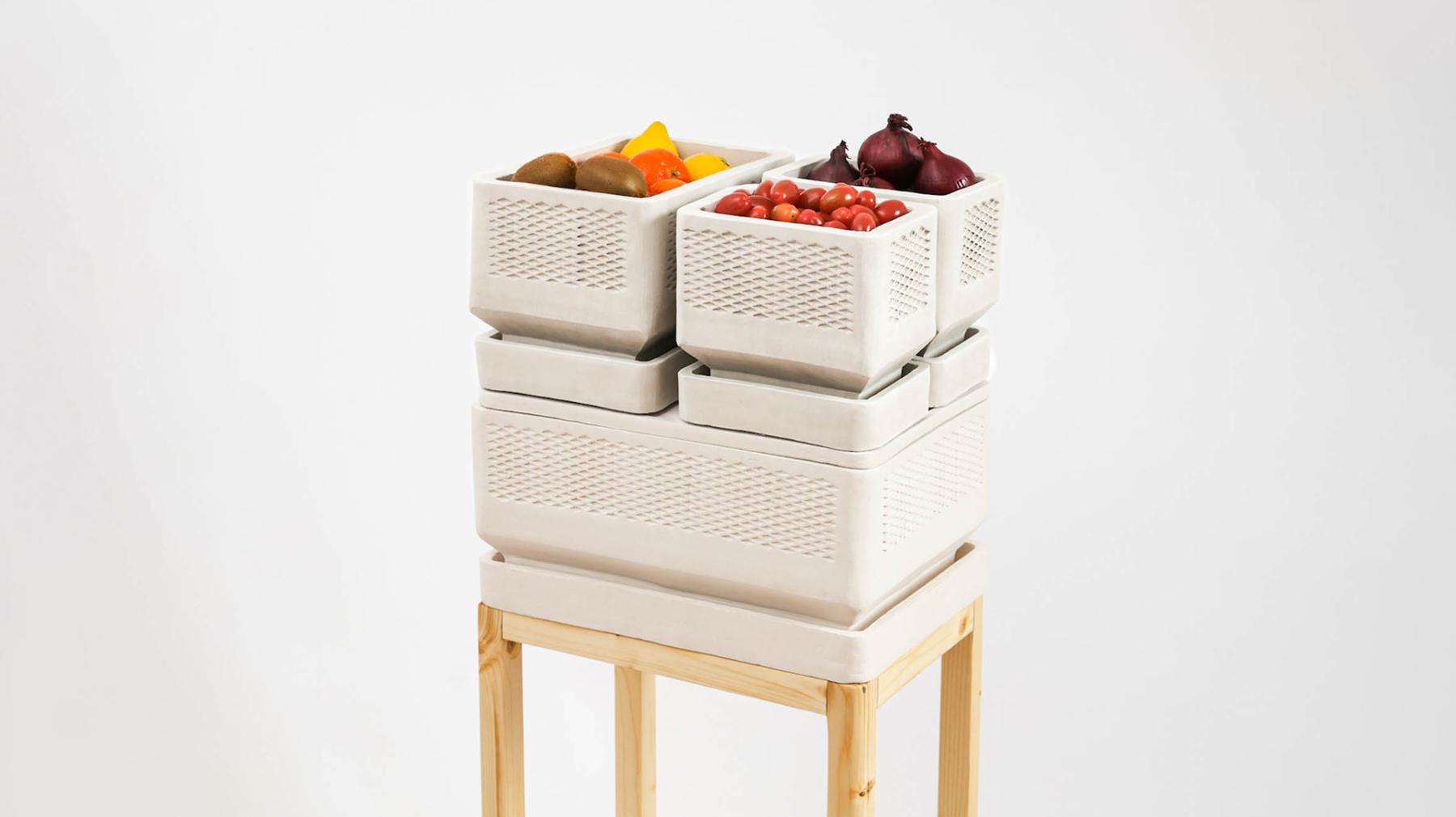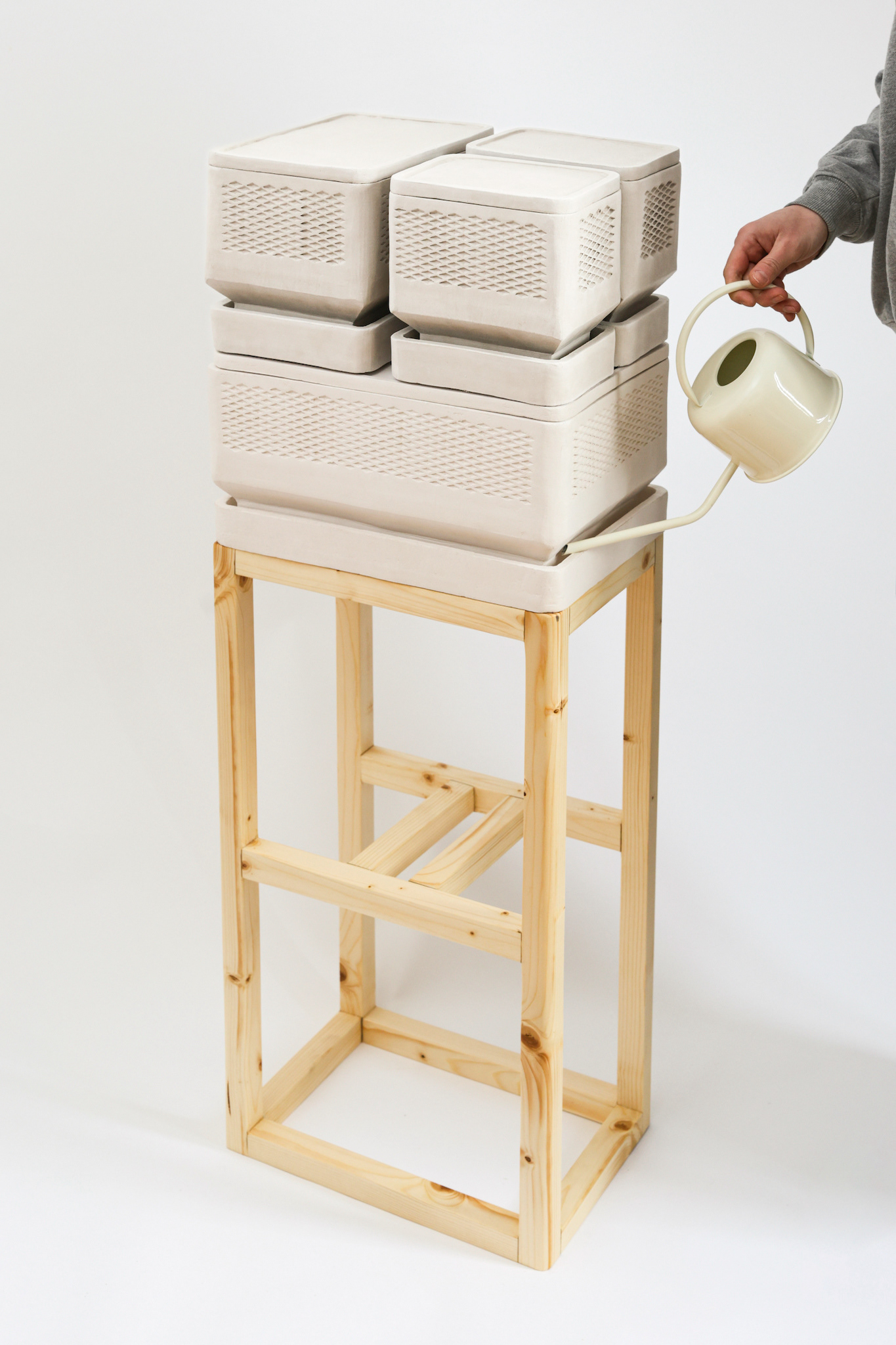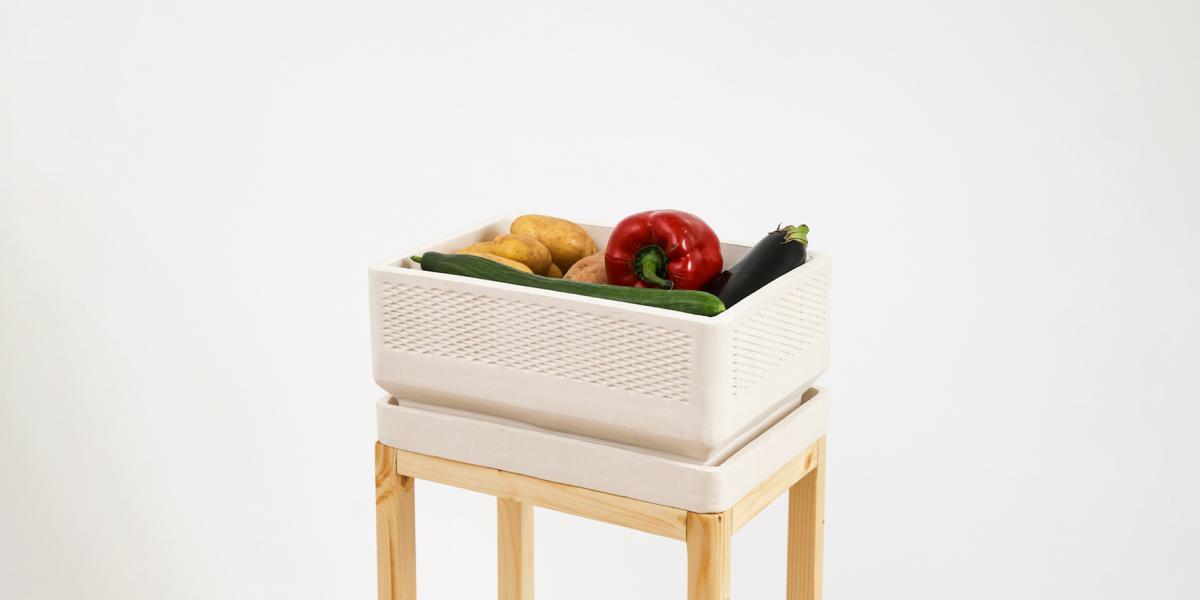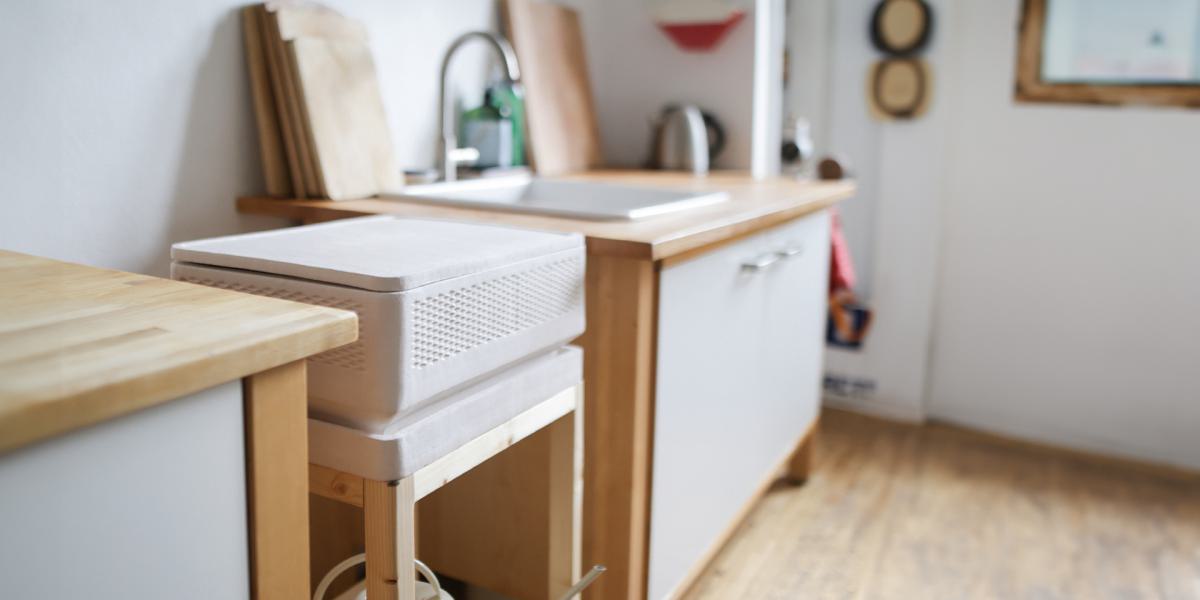
Designed by Lea Lorenz, Tony is a revolutionary refrigeration system that harnesses the power of evaporative cooling, reducing energy consumption and waste while providing an eco-friendly solution for certain food items.
Evaporative Cooling for the Win
At the core of Tony’s innovation is the concept of evaporative cooling. It’s a method that requires no electricity and uses natural processes to maintain optimal storage conditions for select fruits, vegetables, and baked goods that typically don’t thrive in traditional refrigerators.
Tony’s secret lies in its use of porous Raku clay, which absorbs water from an integrated tank. As this water gradually evaporates on the interior surfaces of the food container, it works its magic, cooling the contents to a comfortable 13°C to 17°C. This unique cooling process not only keeps food fresh but also addresses the issue of avoidable food waste.

Tackling Food Waste at Its Source
Avoidable food waste is a global problem, and Tony directly addresses this concern. Many fruits, vegetables, and baked goods are discarded prematurely due to incorrect storage. For some, the cold of a traditional fridge affects taste and quality, while others spoil quickly when left at room temperature. Tony’s innovative approach is about promoting sustainable consumption and extending the life of your food.
Built to Last
Tony isn’t just about providing an eco-friendly solution to food preservation; it’s also designed to endure. Each clay jug cooler is constructed with robustness in mind, intended to provide reliable service for as long as possible. This commitment to longevity not only benefits the user but also aligns with the principles of sustainability by reducing waste.
Sustainability at Every Stage
Tony’s commitment to environmental responsibility extends throughout its lifecycle. Its production process is designed to minimize its carbon footprint. The Raku clay used is sourced from the local Westerwald region, reducing transportation emissions. During manufacturing, the clay coolers are fired at the lowest possible temperature (1000 degrees), consuming minimal energy.
But it doesn’t end there. Tony components that are no longer intact can be recycled by grinding them into fireclay. This fireclay can then be reintegrated into clay masses for the production of new coolers. This circular approach to product life is a remarkable example of how sustainability can be embedded into every aspect of a product’s journey.
Dutch Design Week Showcase
Tony’s innovative design and sustainability features earned it a spotlight at Dutch Design Week (DDW), a platform dedicated to quality design and the future of design itself. Tony’s presence at DDW demonstrates the potential for design to address pressing global issues.
All images in this article are courtesy of Lea Lorenz.







